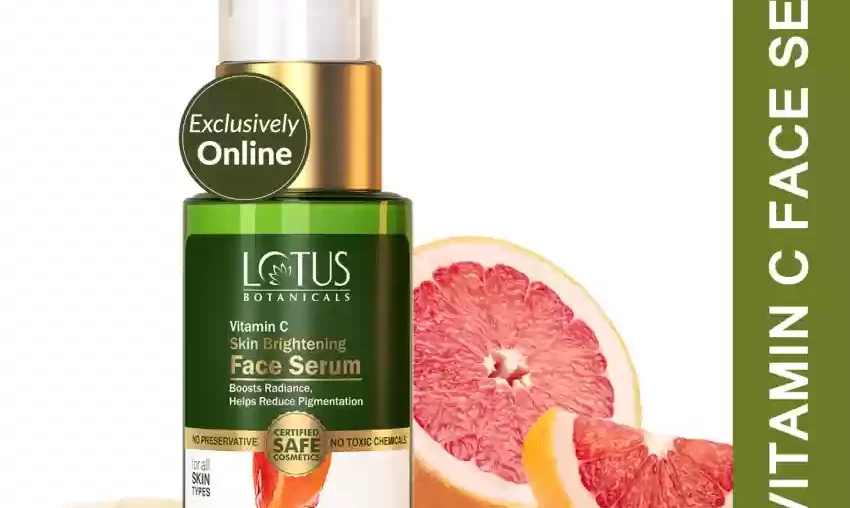Dry skin can be a persistent concern, especially during colder months or in arid climates. The tightness, flakiness, and rough texture that often accompany dry skin can leave you feeling uncomfortable and looking dull. If you’ve tried multiple moisturizers without seeing results, it may be time to explore the benefits of serums for dry skin. These lightweight, yet powerful products are designed to target hydration at a deeper level, delivering essential nutrients directly to your skin. In this article, we’ll explore why serums are an excellent choice for dry skin and recommend some of the best ingredients to look for.
What Makes Serums Different from Moisturizers?
While moisturizers form a protective barrier on the skin’s surface, trapping moisture to keep the skin hydrated, serums for dry skin offer a more targeted approach. They are typically formulated with a higher concentration of active ingredients, making them more potent than standard moisturizers. Serums penetrate deeper into the skin, addressing specific concerns such as fine lines, discoloration, and, most importantly, dryness.
Because serums are often lighter in texture than moisturizers, they are easily absorbed, delivering ingredients quickly and efficiently. This makes them perfect for individuals with dry skin, as they can hydrate deeply without leaving a heavy or greasy residue.
Key Ingredients in Serums for Dry Skin
The effectiveness of a serum largely depends on its ingredients. If you’re looking for a serum that will quench your skin’s thirst, here are some essential ingredients to look for:
- Hyaluronic Acid One of the most popular ingredients in serums for dry skin, hyaluronic acid is a powerhouse when it comes to hydration. This naturally occurring substance binds water to the skin, keeping it plump and moisturized. It helps draw moisture from the air and locks it into the skin, providing long-lasting hydration. For dry skin, a hyaluronic acid serum can instantly relieve that tight, uncomfortable feeling while smoothing out rough patches.
- Vitamin C If dry skin has left you with a dull complexion, vitamin C is a game changer. This powerful antioxidant helps brighten the skin, fade dark spots, and improve overall skin texture. Vitamin C serums also help protect against environmental stressors, such as pollution and UV rays, which can further contribute to dryness and irritation. Look for serums that combine vitamin C with hydrating ingredients for a double boost of moisture and radiance.
- Niacinamide Niacinamide, also known as vitamin B3, is a superstar ingredient for dry skin. It strengthens the skin’s natural barrier, helping it retain moisture more effectively. Niacinamide also soothes inflammation and reduces redness, making it ideal for sensitive, dry skin. When used in a serum, niacinamide can improve skin texture, reduce fine lines, and give your complexion a smooth, even appearance.
- Ceramides Ceramides are lipids (fats) found naturally in the skin that help maintain the skin’s protective barrier. When the skin’s barrier is compromised—due to dryness, environmental factors, or aging—ceramides can help restore it. Using a serum with ceramides can replenish your skin’s natural defenses, locking in moisture and preventing further dehydration.
- Squalane Derived from plants or olives, squalane is a lightweight, non-comedogenic oil that hydrates the skin without clogging pores. It has a silky texture and works well in serums for dry skin because it mimics the skin’s natural oils, offering deep hydration and a healthy glow. Squalane also has anti-aging properties, as it helps to smooth fine lines and improve skin elasticity.
- Glycerin Glycerin is another fantastic humectant, similar to hyaluronic acid, that draws moisture into the skin. It’s often used in hydrating serums for its ability to keep the skin soft and smooth. Glycerin is gentle and effective, making it a perfect addition to a serum for dry, sensitive skin types.
How to Apply Serums for Dry Skin
To get the most out of your serums for dry skin, it’s important to apply them correctly. Start by cleansing your face to remove dirt, oil, and impurities, and gently pat your skin dry with a towel. Apply a few drops of serum to your face and neck, using your fingertips to lightly massage it into your skin. Be sure to follow up with a moisturizer to lock in the hydration and provide additional nourishment.
For best results, consider using your serum both in the morning and at night. During the day, you can apply a serum that includes antioxidants like vitamin C to protect against environmental damage. At night, opt for a serum with more intensive hydrating ingredients like hyaluronic acid or ceramides to replenish moisture while you sleep.
Why You Should Add Serums to Your Skincare Routine
While moisturizers are essential for all skin types, serums for dry skin are a game-changer for those seeking deeper hydration and faster results. Serums allow you to target the root cause of dryness, giving your skin the nourishment it needs at a cellular level. They can help reduce the appearance of fine lines, improve skin texture, and restore a healthy, glowing complexion.
If you’ve been struggling with dry skin despite using moisturizers, incorporating a serum into your skincare routine may be the missing step. By combining a serum with your regular moisturizer, you can ensure that your skin receives both surface-level hydration and deep, lasting moisture.
Conclusion
Serums for dry skin are the ideal solution to combat dehydration and restore your skin’s natural glow. Packed with potent ingredients like hyaluronic acid, vitamin C, and niacinamide, these serums provide quick and effective hydration, leaving your skin soft, smooth, and radiant. Whether you’re looking to boost your skincare routine or address specific concerns like fine lines or dullness, adding a serum can make all the difference in achieving healthy, nourished skin. So, take the plunge and explore the transformative benefits of serums for dry skin—you’ll be amazed at the results!



